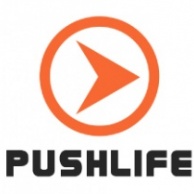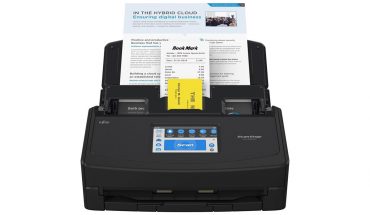By Lee Rickwood,
Mobile media delivery. 3D desktop environments. E-mail and web browsing apps. Multi-player online gaming – hey, is there anything else you need to succeed in this techno-infatuated world?
How about some 6,000 patents and patent applications for wireless and wireless 4G; data, voice and optical networking; Internet and other technologies?

Google Gives a Shout Out to the Great White North
Google has clearly identified what it needs to move forward in the mobile and online space.
Canada, maybe not so much.
The search engine giant has been snapping up some of the top Canadian tech assets and applications, buying dynamic and forward-thinking companies like BumpTop, PushLife, Social Deck and more.
And, seeking to get its hands on perhaps the holy grail of Canadian tech developments, Google is offering nearly one billion dollars for Nortel’s suite of information and communication technology patents. The extensive portfolio interacts with just about every aspect of today’s Internet search and social networking landscape.
Research In Motion (RIM) is also reportedly considering a bid for Nortel portfolio of wireless technology patents that would top Google’s $900 million offer.
Such acquisitions, whether truly intended to help develop new products or merely to keep new ideas from the hands of the competition, would certainly make an interesting development, and surely reposition RIM in a new light.
In a blog post, Google said:
‘One of a company’s best defenses against this kind of litigation is (ironically) to have a formidable patent portfolio, as this helps maintain your freedom to develop new products and services. Google is a relatively young company, and although we have a growing number of patents, many of our competitors have larger portfolios given their longer histories.’
Still, it’s probably a lot better to be a lawyer than an inventor.
Any such sale would be subject to Canadian and U.S. court approvals, of course, but also contingent on the results of an expected asset auction in June 2011.
But Nortel itself recently said the mediation process put in place to divvy up all the proceeds from the sale of the former Canadian tech leader has ended “without resolution of the matters in dispute.”
Billions of dollars that was to be handed out to creditors and other stakeholders will certainly be delayed (in the past two years, Nortel generated more than $3 billion by selling itself off piece by piece), and further acquisitions will surely be affected.
Nortel was among the world’s most advanced developers of telecom equipment a decade ago. But the company’s fortunes changed significantly during the economic upheaval of the early 2000s, and as a result of an accounting scandal that helped sully the company’s stock price and reputation.
In its heyday, much of Nortel’s research and development was done in Ottawa, at the facility once known as Bell Northern Research; it helped trigger the rise of the capital city’s tech sector.
Nortel’s demise directly led to the start of other companies in the region, and a long history of technological development, but it is also seen to have undercut the pace and trajectory of the sector.
Might the same be happening in another Canadian tech community – have we already met our technological Waterloo?
Google is more than just interested in established a tech foothold there – it’s been a quiet investor for several years.
One of the first acquisitions was of a small e-mail app and Web browsing company called Reqwireless Inc. Its products are no longer on the market, but its business apps and productivity development work on the mobile Java platform was respected as a strong tool for accessing multiple POP, IMAP or other e-mail accounts.
Shortly after the acquisition, Google set up its own offices in the region, offices it later outgrew as its regional staffing hit about 70 employees, necessitating a move to a larger, more sophisticated location in Kitchener, ON, a building once called The Tannery but now known as ‘The Hub’, a multi-tenant Digital Media and Mobile Accelerator centre.
Of course, last year, whatsyourtech.ca reported on Google’s acquisition of another Canadian tech start-up called BumpTop. The company had developed a cool and forward thinking 3D desktop interface designer, but as Tim Teatro noted in his report, that product, too, is no longer available on the market.
Then, there’s Google’s purchase of Canadian social gaming company SocialDeck.

Mobile games like Shake and Spell have been acquired by Google
Founded in 2008, the company created multiplayer games for mobile devices and online social networks. Popular games like Shake and Spell and Pet Hero had been downloaded more than a million times by mobile users.
Most recently, word comes that PushLife, a Toronto-based mobile media company founded in 2008 by a former RIM employee, has been purchased by Google.
PushLife’s mobile apps support the delivery, sharing and purchase of digital content through portable media devices, particularly the BlackBerry and Android Smartphone family.
The software works with Apple iTunes or Windows Media Player, but also with other end user and platform provider solutions, with music download deals with companies like Virgin Mobile in Canada.
PushLife says its staff will now join the Canadian Google engineering team, and move into the tech facility in Kitchener.
PushLife was founded in 2008 by Ray Reddy, a math and computer science grad and University of Waterloo Tech Master, who worked in RIM’s mergers and acquisitions and tech licensing department.
A message on PushLife’s website described its original vision “to build immersive mobile devices to allow users to share and purchase digital content across multiple devices.”

Canadian company PushLife is another Google acquisition
But for now, the PushLife service – like the other Google acquisitions – is being discontinued, with promises of “more adventures” to come.
So maybe Google sees a platform agnostic music and digital media service coming. It’s built in the cloud, so the type of device or even the type of operating system is invisible to the service. Users can get access to their digital media collection (any data file, in fact) on whatever device – from whatever location – they want.
Purchase authorizations and rights management tools will be incorporated, with hooks for search engine optimization and social network integration already built in.
A lot of it is speculation right now, but whatever Google has in mind, it doesn’t seem possible without Canada, eh? They didn’t fail to honour the country’s national holiday, at any rate, with the nice logo nod last July1!
Nevertheless, Canada’s own digital strategy is delayed – again – what with the election now underway and possible changes to the government or its configuration to come.
For more than a decade, many tech sector observers in Canada have bemoaned the fact we lack an overall digital vision, that we offer little or no support for the tech achievements we have made, and that selling out is often more common than growing up.
# # #
So, what’s your tech?
Any concerns about a ‘take-over’ of the Canadian tech sector?
More eager than anything else just to see whatever it is Google is up to?



